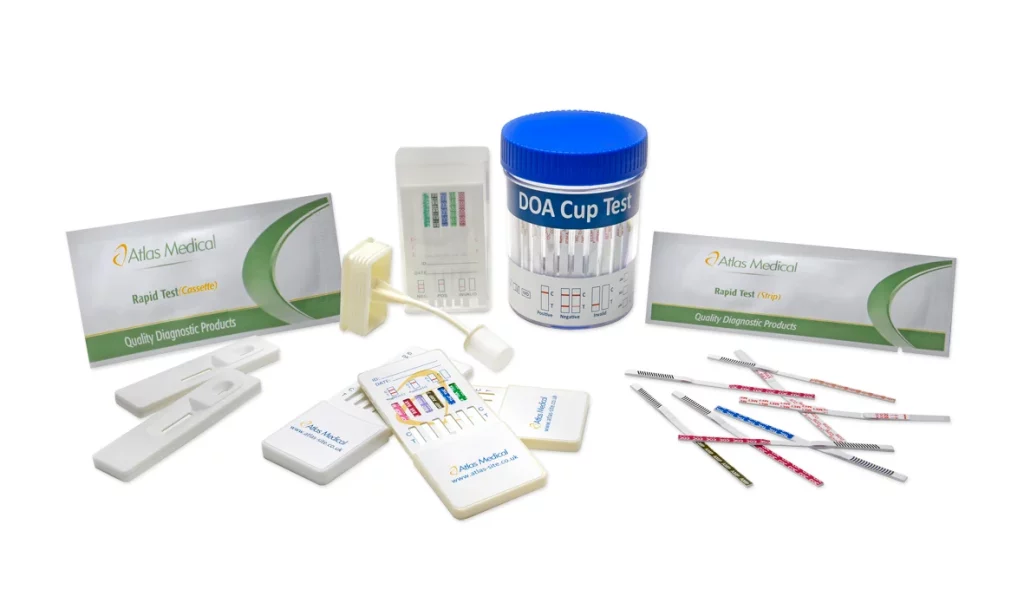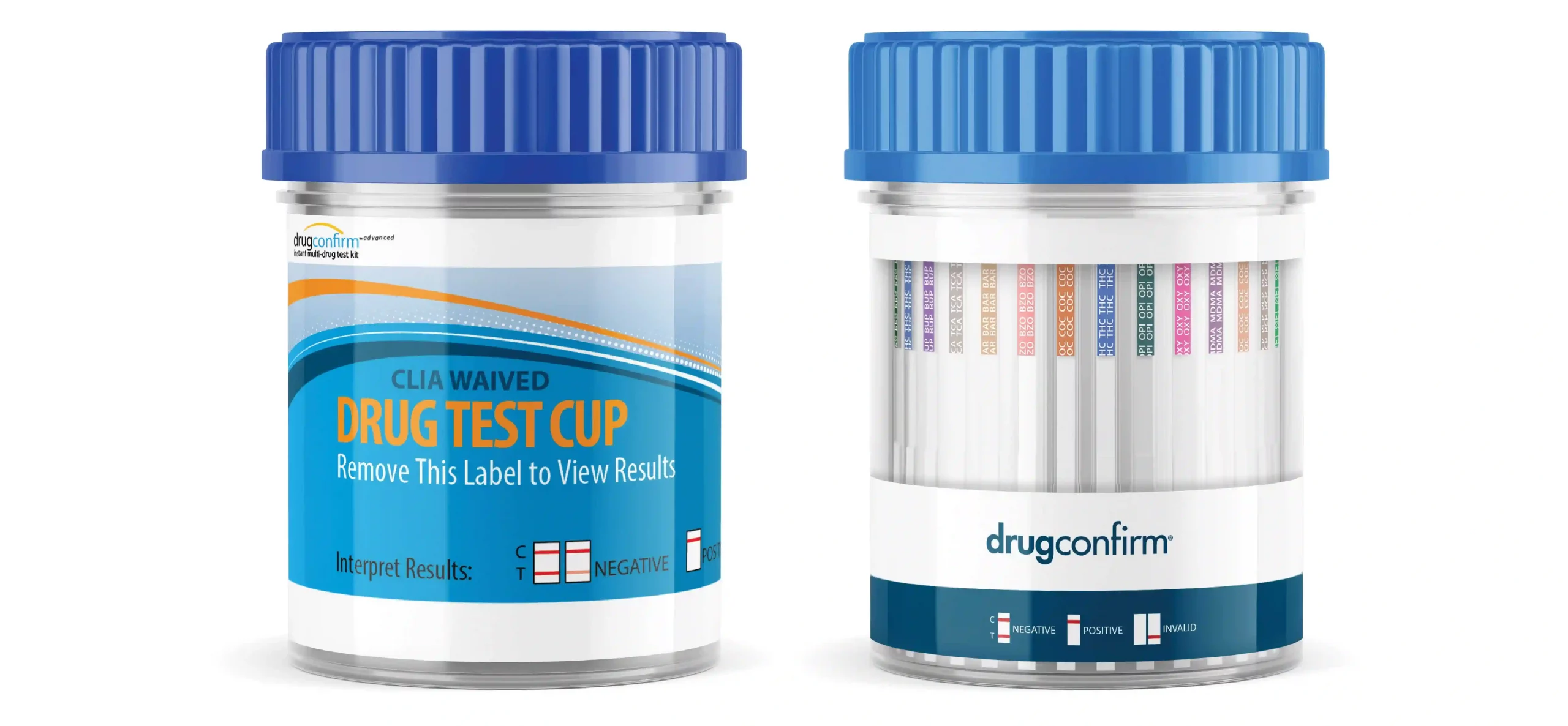Drug abuse is a global issue that affects individuals, families, and societies. It is a problem that is not limited to any particular demographic or geographic region. The impact of drug abuse is even more significant in humanitarian settings, where vulnerable populations are already facing numerous challenges.
Drug abuse in conflict zones, refugee camps, and disaster-stricken areas can exacerbate the existing problems and hinder the efforts of aid workers. Therefore, it is vital to address drug abuse in humanitarian settings to ensure the well-being of the affected communities.
One of the ways to address drug abuse in humanitarian settings is through the use of drug test kits. Drug test kits are tools that aid workers can use to detect the presence of drugs in individuals. These kits are essential for effective intervention and support in these settings. They provide valuable information to aid workers, medical professionals, and policymakers, allowing them to design targeted interventions, prevent drug-related harm, and improve the overall well-being of the affected communities.
When it comes to finding the right drug test kit supplier for humanitarian aid, there are several tips to keep in mind. Firstly, it is crucial to prioritize suppliers with a proven track record of quality and reliability. Look for suppliers who have experience working with humanitarian organizations and have a reputation for providing accurate and dependable drug test kits.
Secondly, consider the range of drug test kits offered by the supplier. Different humanitarian settings may require different types of drug tests, so it’s important to find a supplier that offers a variety of kits to meet diverse needs. Look for suppliers who provide comprehensive testing options for a wide range of substances.
Furthermore, consider the supplier’s commitment to ethical practices. Ensure that the supplier adheres to ethical guidelines and maintains the privacy and confidentiality of the individuals being tested. Humanitarian settings often involve sensitive populations, so it is essential to work with a supplier who respects and protects the rights and dignity of the people involved.
Finally, assess the supplier’s ability to provide timely and efficient support. In humanitarian settings, time is often of the essence, so it’s crucial to work with a supplier who can deliver drug test kits promptly and offer reliable customer service.
By following these tips for finding the right drug test kit supplier, humanitarian organizations can ensure they have access to accurate, reliable, and ethical tools to address drug abuse in these challenging settings.
Key Takeaways
- Drug abuse in humanitarian settings has a global impact and hinders aid worker efforts, highlighting the need for a comprehensive approach to address the issue.
- Drug testing is available in both rapid and laboratory-based methods, but accuracy and limitations can present challenges such as false-positive and false-negative results, and ethical considerations must be taken into account.
- Effective drug testing and intervention strategies include early detection and screening, personalized treatment plans, follow-up care, and community engagement to create a supportive environment.
- Consequences of drug abuse in humanitarian settings are far-reaching and affect individuals, families, and communities, making it essential to prioritize prevention and intervention efforts.

Understanding the Impact of Drug Abuse in Humanitarian Settings
The deleterious effects of drug abuse in humanitarian settings can lead to significant physical and psychological harm, exacerbating pre-existing health conditions, and impeding the delivery of essential services to vulnerable populations.
The consequences of drug abuse in these settings are far-reaching, affecting not only the individual but also their families and communities.
Prevention strategies are crucial in mitigating the impact of drug abuse, including community support and education.
Addressing drug abuse in humanitarian settings requires a multi-faceted approach that recognizes the unique challenges of these contexts, including poverty, displacement, and limited access to healthcare.
While drug test kits are one tool that can aid in the prevention and detection of drug abuse, they must be used in conjunction with other interventions that address the root causes of drug abuse and provide support and resources for those affected by addiction.
Differentiating Between Rapid and Laboratory-Based Drug Test Kits
Distinguishing between rapid and laboratory-based drug testing methods is crucial in accurately assessing drug use among individuals.
Rapid drug test kits are designed for quick and easy use, delivering results in a matter of minutes. They are ideal for use in field settings where immediate assessment is necessary, such as in humanitarian aid.
On the other hand, laboratory-based drug testing methods are more accurate and can detect a wider range of drugs. However, they require a longer processing time and are more expensive.
A comparison chart and cost analysis can help determine the most appropriate method of drug testing for a particular situation. Ultimately, the choice between rapid and laboratory-based drug testing methods depends on the purpose of the test, the budget, and the time frame for obtaining results.
Assessing the Accuracy and Limitations of Drug Test Kits in Crisis Situations
Assessing the accuracy and limitations of drug testing methods in crisis situations presents significant challenges that can impact the well-being of individuals and communities.
Interpreting results from drug test kits can be challenging in such situations due to factors such as limited access to laboratory facilities, inadequate staffing, and the unreliable nature of rapid drug test kits.
False-positive and false-negative results can occur with these kits, leading to incorrect diagnoses or inappropriate treatments.
Additionally, challenges faced in crisis situations such as natural disasters or conflict zones can affect the accuracy and reliability of drug test kits.
These challenges include the lack of proper storage conditions, limited availability of medical supplies, and the difficulty in obtaining and transporting samples to laboratories for confirmation testing.
Therefore, while drug test kits can be useful in humanitarian aid situations, it is important to acknowledge their limitations and use them in conjunction with other diagnostic methods to ensure accurate results and appropriate treatment for those in need.
Ethical Considerations for Using Drug Test Kits in Humanitarian Aid
Ethics play a crucial role in the use of diagnostic tools in crisis situations, and this is especially true for drug test kits used in humanitarian aid.
One of the primary ethical concerns with drug testing in these situations is cultural sensitivity. Drug use and addiction can be stigmatized in some cultures, and it is essential to approach testing with respect and sensitivity.
Additionally, there is the risk of false positives, which could lead to incorrect accusations and harm to individuals.
It is also crucial to consider how the results of drug testing will be used and who will have access to them. Ethical guidelines must be established to ensure that the use of drug test kits is done in a way that upholds human rights and respects the dignity of those being tested.
Improving Well-Being Through Effective Drug Testing and Intervention Strategies
Effective drug testing and intervention strategies can significantly improve the well-being of individuals facing addiction. Studies show that those who receive treatment are up to 60% more likely to maintain sobriety than those who do not.
To ensure the success of these strategies, effective intervention methods should be employed. These methods include early detection and screening, personalized and comprehensive treatment plans, and follow-up care.
Community engagement is also crucial in creating a supportive and positive environment for individuals in recovery. This involves the involvement of family, friends, and healthcare professionals in the treatment process.
By implementing these strategies and involving the community, drug testing can not only identify those in need of treatment but also provide a pathway towards sustained recovery and improved well-being.
Conclusion
In conclusion, drug abuse is a serious issue that affects individuals and communities worldwide, including those in humanitarian settings. The use of drug test kits can be an effective tool in identifying and addressing drug abuse in such contexts.
However, it is important to understand the differences between rapid and laboratory-based drug test kits and to assess their accuracy and limitations in crisis situations. Ethical considerations must also be taken into account when using these kits in humanitarian aid.
By improving well-being through effective drug testing and intervention strategies, we can make a positive impact on the lives of those in need. As the saying goes, ‘prevention is better than cure.’ Therefore, it is essential to promote awareness and education about the harmful effects of drug abuse and to provide access to resources and support for those struggling with addiction.
Through collaborative efforts and a commitment to improving health and well-being, we can address the issue of drug abuse in humanitarian settings and beyond.
You may also like to read:
How Humanitarian Aid Is Tackling Global Food Scarcity






